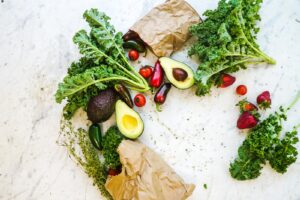It is November and Thanksgiving is at the end of the month. Thanksgiving in this strange year of 2020 will be different for almost all of us. You may not be able to celebrate as you usually do, in the same location or with the same people as in previous years.
For some of you this may be the first Thanksgiving that you have some sort of dietary restriction. You may have limitations on the amount of sugar, other carbohydrates, or fat you can eat due to diabetes. Those with heart or kidney disease may have to restrict animal foods or fat. Some of you may have food allergies or food sensitivities. Instead of being depressed or complaining about your restrictions, I encourage you to look for reasons to give thanks for your dietary challenges.
A little more than thirteen years ago, I began having constant daily headaches and intestinal pains. For about ten months I was unable to figure out what was causing these. I consulted my doctor at least once during that time period, but was not given any definitive answers. I cried my eyes out more than once due to the unremitting pain. Finally I went to back to my doctor. She suggested I try a week-long elimination of wheat products and dairy to see whether that made a difference. Within a day or two, my intestinal pains and headaches were greatly reduced.
This elimination diet helped me discover that I was severely allergic to the gluten grains of wheat, rye, and barley. I also had a lesser sensitivity to some milk products. Since then I have discovered additional sensitivities or allergies to fish, soy, corn, sunflower and sesame seeds, as well as to a few other foods.
When my friends and acquaintances learn about my gluten and other food allergies, the most common response is, “I could never give up bread!” That would most likely have been my response as well, before starting this 13 year journey. Instead I am very thankful that the Lord has shown me many blessings as a result of what would seem to be a hardship.
Three Blessings Due to Food Sensitivities
1. Food is no longer a god.
I have to depend on God daily to supply my needs instead of filling up the hole in my heart with food. When I was working full-time, I would often take a trip to the vending machines between 2 and 4 pm. My favorite snack was a package of Necot cookies and a Diet Coke. (You know, the calories in a snack don’t count when you eat them with a Diet Coke!) Once I had discovered the majority of these food allergies, there was quite literally nothing in the vending machine that I could safely eat.
I did not snack because I was hungry. I had eaten a healthy lunch only a few hours earlier. Instead, the excessive amount of sugar and caffeine in these snacks served to give me a false energy boost at the low point in my workday.
I have now learned that God is what I truly need to fill up my body and my spirit. The junk food took me away from that. Because there are so few packaged foods I can safely have, it takes more planning and thought to find something to eat. This gives me time to pause and reflect on whether there is a true physical hunger or whether it is a spiritual hunger instead. If it is a spiritual need, as it often is, then I pray for the Holy Spirit (instead of cookies) to fill me. If I do need food, I have learned to be prepared with healthy snacks around me instead of junk food.
2. I am healthier than I have ever been.
Recently I posted on my Instagram and Facebook pages that I am the healthiest I have been in my entire life. When I gave up wheat, my lifelong nasal allergies also went away. I have a grass allergy, and wheat is cross-reactive with grass. I eliminated a constant stuffy nose and periodic sinus infections when I eliminated wheat. I also learned that what you eat affects your health. I have a strong genetic tendency to type-2 diabetes, but it is much less likely to become a problem because I now cook mostly from scratch and limit added sugar.
3. I have a new career helping people.
Nutrition consulting is a wonderful way to help people obtain renewed health. My goal is to assist people in figuring out their most appropriate diet so that they can live long productive lives. It has been a privilege to get to know my nutrition clients and help them heal through food. I also love inspiring readers through Bella, other publications, and my blog. I hear from one or more readers on a weekly basis. Often, they tell me that my articles have inspired them to change their eating habits or that they have enjoyed preparing the recipes I often include.
I pray that each of you reading this article will have a wonderful Thanksgiving holiday. I encourage you to look for the blessings in your life, even if you have to restrict your diet in some way. Remember that the most important thing is the people you love and spend time with over the holidays. The food we eat is not the most important.
Why not make this allergy-friendly pie for your Thanksgiving dinner this year?
Apple Cranberry Pie
- 4 cups fresh cranberries
- 4 cups sliced and peeled apples
- 3/4 cup coconut sugar
- 1/4 cup arrowroot powder
- 2 tsp ground cinnamon
- 1/4 cup gluten-free flour
- 3/4 cup gluten-free oats
- 1/4 cup coconut sugar
- 1/4 cup butter or coconut oil, melted
- frozen gluten-free prepared pie crust
- Preheat oven to 350°.
- In a large saucepan, stir together cranberries, apples, sugar, arrowroot, and cinnamon. Cook filling over medium heat until bubbly, thickened, and no longer cloudy. Spoon into prepared pie crust.
- In a small bowl, stir together oats, flour, sugar, and melted butter. Spoon topping over filling.
- Bake until crust is golden brown and filling is bubbly, about 45 minutes. Serve warm.
Adapted from Cast Iron Fall Baking, 2019.






